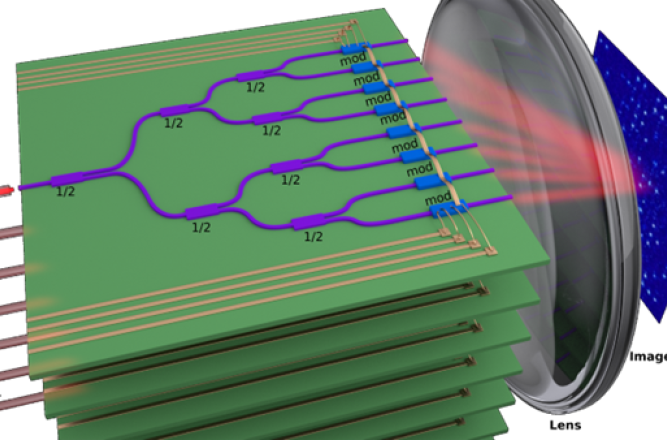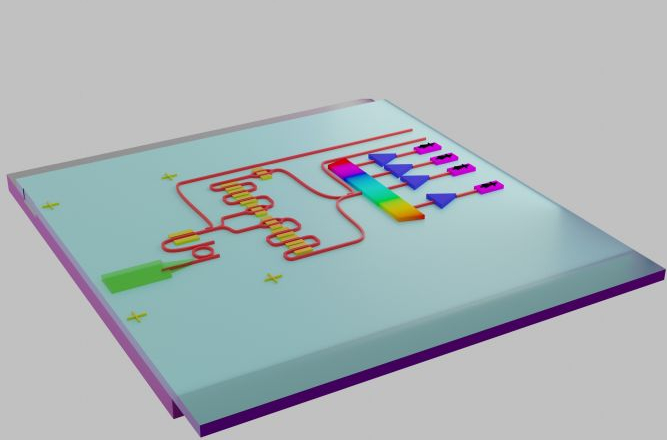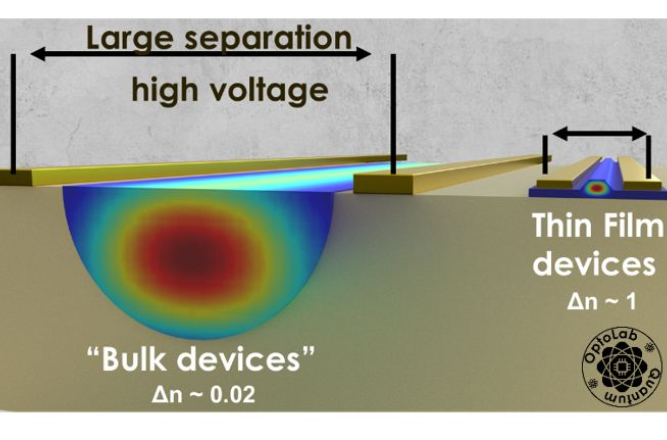Our research group investigates light manipulation at the nanoscale, leveraging advancements in semiconductor nanofabrication to engineer integrated photonic platforms. These platforms serve both as tools for fundamental scientific inquiry into quantum optics and as prototypes for future information technologies. Our work spans the theoretical and experimental domains of nonlinear quantum optics and integrated photonics, with a focus on harnessing nanofabrication techniques to explore novel quantum phenomena. We are particularly interested in the behavior of light within micro-resonators, where enhanced light-matter interactions enable studies of scalable quantum systems. Our expertise encompasses nanofabrication, integrated photonics, and applied superconductivity, with applications in nanoplasmonics, metasurfaces, and classical optoelectronic devices.

WHAT WE DO?
Our research group studies light and how to control it at a very small level. We use advanced methods to create tiny structures that help us learn about fundamental science and could be used in future technologies. We are especially interested in new ideas in quantum physics and building tiny light-based circuits, which could lead to breakthroughs in science and technology.

What are integrated photonics ?
Integrated photonics is a technology that combines multiple optical components—such as lasers, modulators, and detectors—onto a single chip, much like how electronic circuits integrate transistors. It enables faster data transmission, lower power consumption, and greater scalability compared to traditional optical systems. Integrated photonics is essential for advancing applications in telecommunications, quantum computing, sensing, and data centers due to its compactness and efficiency

Why Thin-Film Lithium Niobate?
Thin-film lithium niobate (TFLN) is a next-generation photonics platform enabling compact, high-speed, and energy-efficient optical devices. It leverages lithium niobate’s excellent electro-optic and nonlinear properties in a thin-film format for precise light control. Compared to bulk lithium niobate, TFLN offers lower loss, higher integration density, lower operating voltage, and better compatibility with silicon photonics and CMOS technologies.
